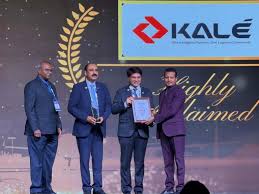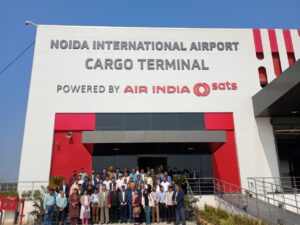Samanjasa Das, Chief Commissioner of Customs, Delhi Zone, provides valuable insights into customs and air cargo operations, highlighting technology, streamlined processes, and collaboration for efficient global trade.

Air cargo sector is on the cusp of transformative changes
Samanjasa Das sheds light on India’s modernised regulatory framework for air cargo operations. Aligned with global standards such as World Customs Organisation (WCO) protocols and the Authorised Economic Operator (AEO) program, this framework emphasises efficiency without compromising security. It incorporates pre-arrival processing, risk-based inspections, and a single-window system that integrates multiple government agencies. These measures streamline clearances while maintaining compliance with trade and security requirements, ensuring faster and more reliable cargo handling to support international commerce.
Navigating challenges
Balancing swift processing with robust security is a key challenge for customs authorities in managing air cargo. Growing data complexity, sophisticated smuggling methods, and the need for regulatory compliance, particularly with Harmonised System Nomenclature (HSN) codes, demand innovative approaches. Additionally, resource constraints, including limited manpower and infrastructure, coupled with the prevalence of counterfeit goods, present significant hurdles. Overcoming these challenges requires a combination of technological advancements, policy reforms, and strategic resource allocation.
ICETAB: Revolutionising customs operations
ICETAB devices have transformed air cargo clearance by giving Customs officials real-time access to important data, improving efficiency and mobility. ICETABs facilitate instant data submission, reducing paperwork and significantly shortening clearance times. By streamlining workflows, these devices promote transparency and accountability. Looking ahead, integrating ICETABs with artificial intelligence (AI) holds the potential to detect anomalies and suspicious consignments more effectively, bolstering both efficiency and security.
Turant customs: Accelerating clearances
India’s Turant Customs initiative is a testament to the country’s commitment to expediting air cargo operations. Combining e-filing, automated risk management, and pre-arrival processing, Turant Customs reduces delays and enhances transparency. Das elaborates on how faceless assessment, a key feature, eliminates physical interactions, fostering a seamless clearance experience. Collaboration with partner government agencies and robust training programs for officers further enhance the system’s efficiency. These initiatives reflect India’s dedication to creating a fast, transparent, and technology-driven customs ecosystem.
Fostering collaboration
Effective collaboration with industry stakeholders is crucial for optimising air cargo operations. Das emphasises regular consultations with freight forwarders, airlines, and importers/exporters to address industry concerns and streamline processes. Initiatives like public feedback on draft regulations and the AEO program, which offers certified stakeholders benefits like reduced inspections, build mutual trust and strengthen supply chain security. These efforts ensure that the air cargo sector operates efficiently while maintaining global trade standards.
Pioneering the future
The air cargo sector is on the cusp of transformative changes. Das highlights upcoming developments, including enhanced security protocols to counter emerging threats and the integration of advanced technologies to improve supply chain transparency and efficiency. These measures aim to create a resilient and sustainable air cargo ecosystem, ready to meet the dynamic demands of global trade. Focusing on innovation and collaboration, India stands ready to take the lead in redefining air cargo operations for the future.











